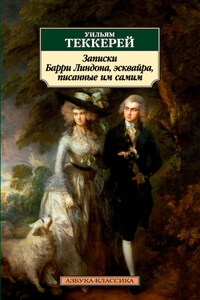CHAPTER I
LE GLORIEUX HEARS GOOD NEWS
The old duchess was talking of the past, while behind her chair Le Glorieux was silently and joyously turning handsprings. I wish I might give him another name, for that one is certainly a mouthful, but as he really lived, and that was what he was called, we must manage it as best we can.
You may think, and with reason, that turning handsprings was not a respectful thing to do when a lady, and above all a duchess, was talking. But Le Glorieux was the court jester, the fool, who when Charles the Bold, son of the duchess, was living, was wont to make his master laugh. Therefore his conduct and conversation as a rule were not what one could expect of a sedate and dignified member of society.
In the presence of his late master, Le Glorieux could have turned handsprings in plain view, but the dowager duchess was old and querulous and resented such performances. She was the widow of Philip the Good, Duke of Burgundy, and she looked very much like a fairy godmother in her quaint costume of the time of Charles the Seventh. She had been lady in waiting at the court of the French king, and she still clung to the high headdress, towering some twenty inches above her brow, and its long veil, which seemed to be boiling in filmy folds, like foam, from its pointed top. By her side was an ebony crutch, not for the purpose of turning pumpkins into coaches for the convenience of neglected Cinderellas, but to support the weight of the owner when she cared to move about; for rheumatism, which was up and doing even so long ago as the fifteenth century, had no more respect for a duchess than for a scullery maid, and had spitefully attacked her Grace of Burgundy.
The windows were veiled by heavy curtains that excluded the sunshine, and the only light in the long dim room came from the brazier at the feet of the duchess, who required artificial heat even in this warm autumn weather. Outside – Le Glorieux knew – the birds were singing and the butterflies were dipping in and out among the roses nodding in the soft breeze; but to-day the beauties of nature did not attract him so strongly as did the unusual degree of excitement going on in the castle. The Lady Clotilde had been sent for by her cousin, the young Duchess Anne of Brittany, and so, bag and baggage and servants, she was to set out on the following morning. Throughout the castle was felt the buzz and bustle of preparation, maids running in and out, and pages spinning up and down the staircases, for the Lady Clotilde liked to keep everybody busy. Le Glorieux longed to see what was going on, for, though a grown man, he possessed the heart of a rollicking boy and was highly entertained by a hubbub.
There had been plenty of diversion while Charles the Bold was living, a fact of which you will be convinced when you read your history of France, and he had once taken Le Glorieux with him to the wars, where the latter had shown himself to be brave and fearless, and when Charles was not planning campaigns against the neighboring countries, or engaged in carrying out his plans, he liked, while sipping the red or the white wine of his province, to listen to the drolleries of his jester. In those days, you see, there were no newspapers, no printed jokes, and it was necessary for even a fierce and warlike duke to laugh at times. But after the duke's death nobody cared much for the jester's jokes, and his principal duty seemed to be to listen to the dowager duchess talk, and as she was in the habit of repeating the same story a good many times a day, her conversation was usually extremely wearisome.
"Yes," said she, holding her wax-like hands out to the brazier and rubbing them thoughtfully, "I remember it as well as if it had happened yesterday. I do not know whether I ever mentioned to you, Le Glorieux, that I was lady in waiting to her Highness, Marguerite of Scotland, then Dauphiness of France?"
With the agility of a cat the jester, who at this moment was standing on his head, regained his feet and stood respectfully before her Grace. "Never, Cousin," replied he gravely; "or at least not more than five thousand times."
"I thought not," she returned, for being somewhat deaf she had not caught the latter part of the sentence. "Yes, I was in the train of that dear and beauteous lady whom I loved so much that I still wear the costume chosen by her, this cap and veil and these shoes."
The old lady thrust out a foot shod in a shoe having a sharp point as long again as her foot, remarking contentedly, "This is a fine style of a shoe, do you not think so, Le Glorieux?"
"Yes, Cousin, and one calculated to encourage an ambitious great toe that is anxious to keep on growing," replied the fool, whose own shoes were pointed, but in a style far less exaggerated than those of her Grace.
"As I was saying," she went on, "I remember it as well as if it had happened yesterday. The dauphiness was fond of learning, and she composed verses of no small merit. I too caught the contagion and composed verses. I wish that I could remember some of them to repeat to you."








